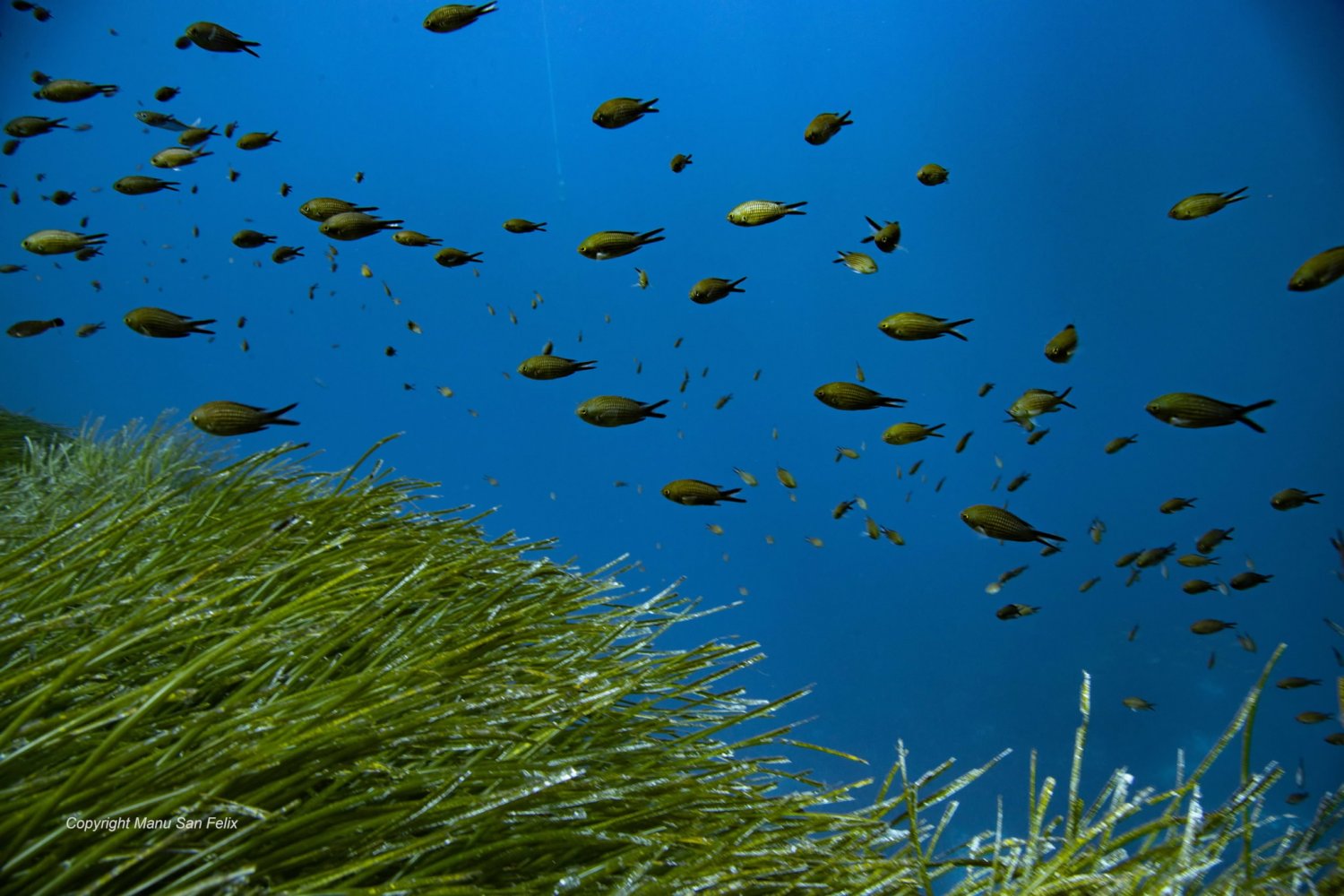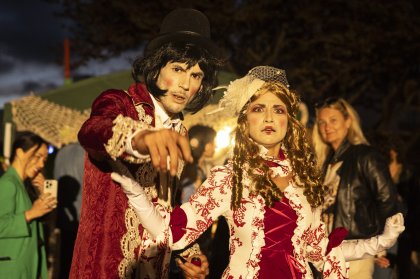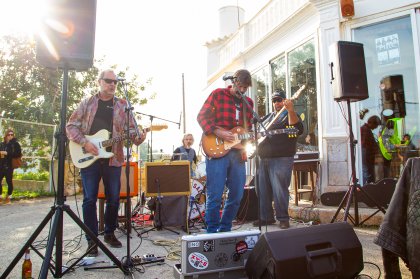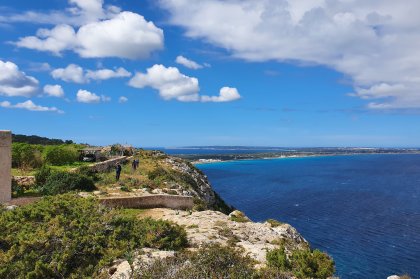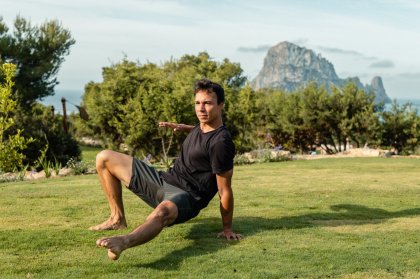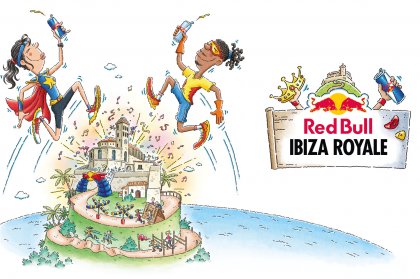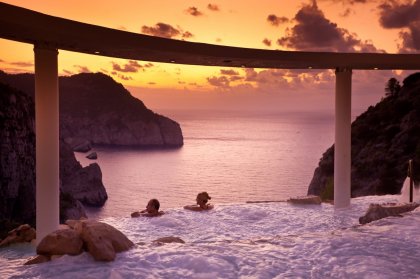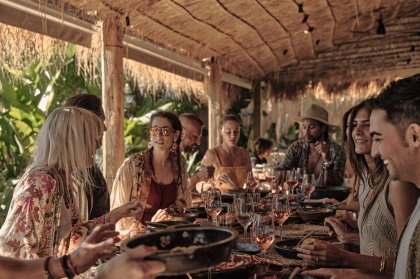Photo courtesy of Manu San Félix
The crystalline waters around Ibiza and Formentera are one of the islands' main attractions. Indeed, sometimes the sea is so turquoise, you could be forgiven for thinking you'd been transported to the Caribbean. But did you know that it's all thanks to one of the world's largest and oldest living organisms, which grows along the sandy sea floor?
It's called Posidonia oceanica (named, of course, after the Greek sea god). This type of seagrass is found all over the Mediterranean, but the meadows around our islands are some of the best examples of their kind. So much so, in fact, that they have been declared a UNESCO World Heritage Site.
The meadows stretch, quite literally, for miles. One particular patch off Formentera was found to be 15 kilometres long and, in 2012, scientists studying specimens from it revealed they believed it to be between 80,000 and 100,000 years old.
The lungs of the Mediterranean
Posidonia is key to our marine ecosystem, supporting a variety of species, including fish and sea horses, which use it for feeding, breeding and shelter. Not only that, it is also a highly effective carbon sink. Seagrass can store up to 15 times more carbon than the same area of terrestrial forest, sequestering it at a faster rate and keeping it trapped for millions of years. It's estimated that our Posidonia meadows absorb up to 13% of carbon emissions in the Balearics.
The plant also filters and oxygenates the water. The gas is then released back into the atmosphere, providing more than half the oxygen we breathe. So it may not surprise you to learn that Posidonia is often referred to as the “lungs of the Mediterranean”.
Under threat
Unfortunately, despite being one of our most valuable natural assets, Posidonia is in danger. Over the past 40 years, the western Mediterranean has lost about a third of its meadows. The warming of the seas due to climate change is one threat; the seagrass starts to die off once the water temperature reaches 28°C, and these days we are seeing peaks as high as 29°C.
Increasing pollution in the water is another issue, as is uncontrolled boat anchoring. Posidonia Oceanica grows incredibly slowly, at a rate of less than one centimetre a year. Just one vessel dropping anchor in the grass can create a bald patch which then takes centuries to repair.
With around 2000 recreational charters crossing between Ibiza and Formentera every day during the season, it’s easy to see how even just a small percentage discharging their waste at sea or anchoring in the meadows can cause extensive and lasting damage.
Taking Action
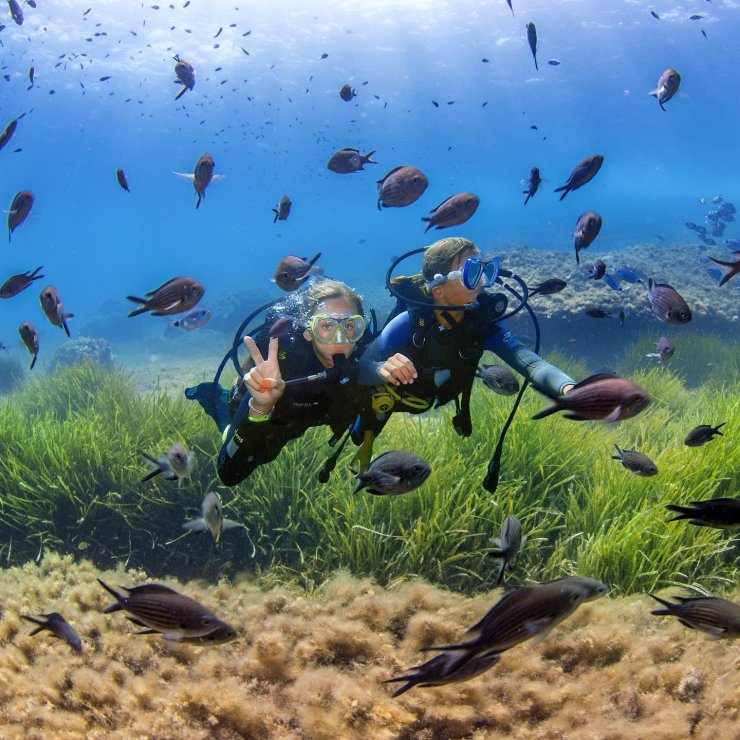
Vellmarí dive camps
We at IbizaPreservation are determined to ensure this magical plant can thrive once more in our waters and have therefore made the protection of Posidonia one of our four key conservation projects. We are currently funding a study of the state of the meadows in Cala Vedella, led by our partners at GEN-GOB Eivissa, and are also financing the development of a “conscious sailing” course run by One Planet One Life, which aims to teach good practice to boat captains.
Additionally, we support educational programmes such as the Formentera Dive Camp run by Vellmarí Association, where children aged from 8 to 17 learn about the local marine environment through a series of workshops and get to experience it first-hand under the water. And we have provided seed-funding for the creation of a free Posidonia MAPS app for iPhone and Android, so as to help guide boat captains as to where they can anchor.
What you can do
Even if you are just visiting the island briefly, you can still do your bit to help:
- If you’re going out on a boat trip, please ask your captain to ensure they don’t anchor in the Posidonia and invite them to use the Posidonia MAPS app to help them.
- Invest in some environmentally friendly, chemical-free sunscreen. Pollutants from normal sun cream contaminate the water and poison the seagrass. There are plenty to choose from but our friends at Sol de Ibiza and Ibisun make one locally and, what's more, a percentage of each pot sold is donated to IbizaPreservation!
- You can also donate to our Posidonia protection project via our website.
- Become a Posidonia ambassador and help spread the word about this precious plant and how best to protect it!
You can find out more about IbizaPreservation and donate towards their work by going to their website: ibizapreservation.org. You can also follow them on Instagram, Facebook and Twitter.
